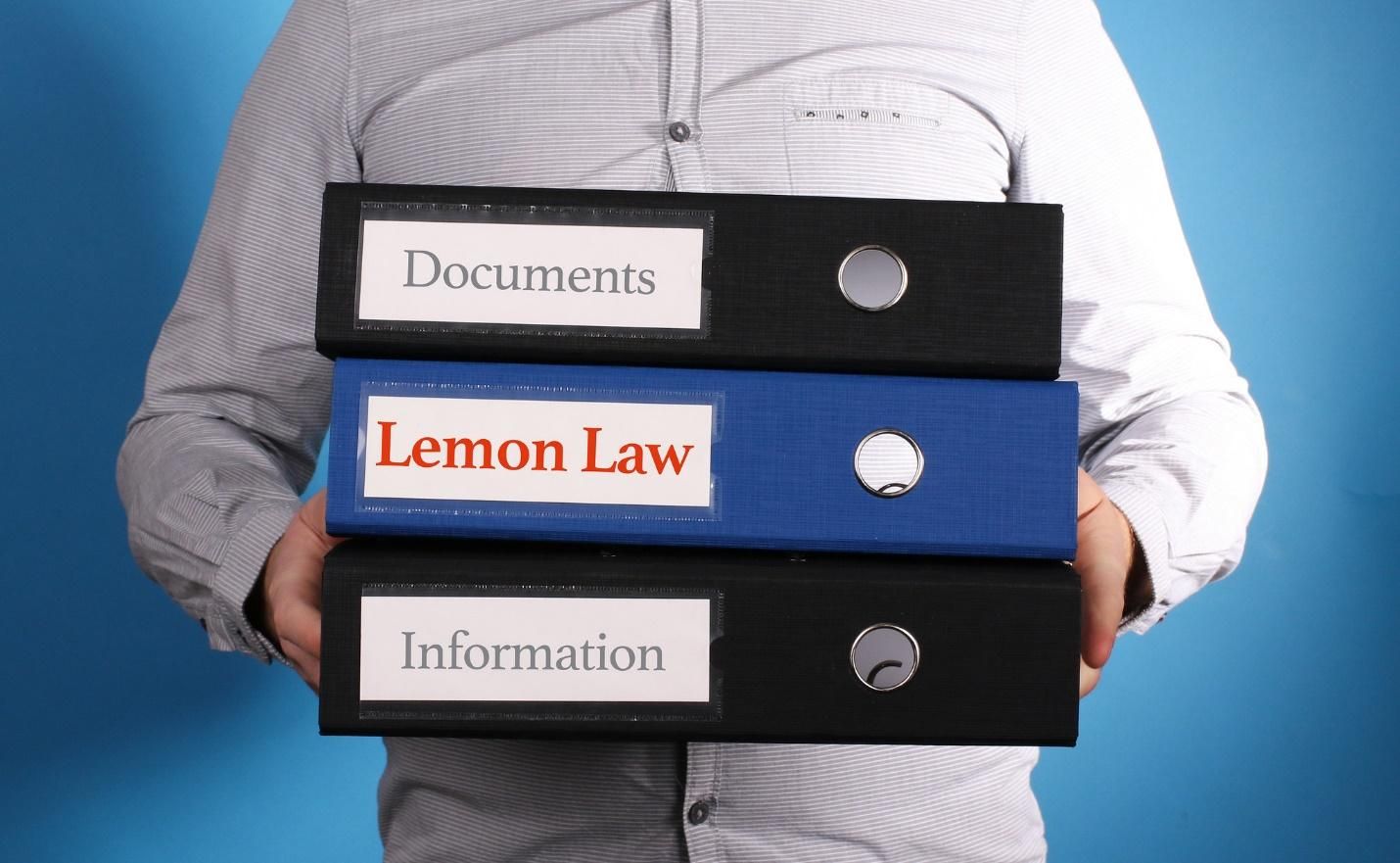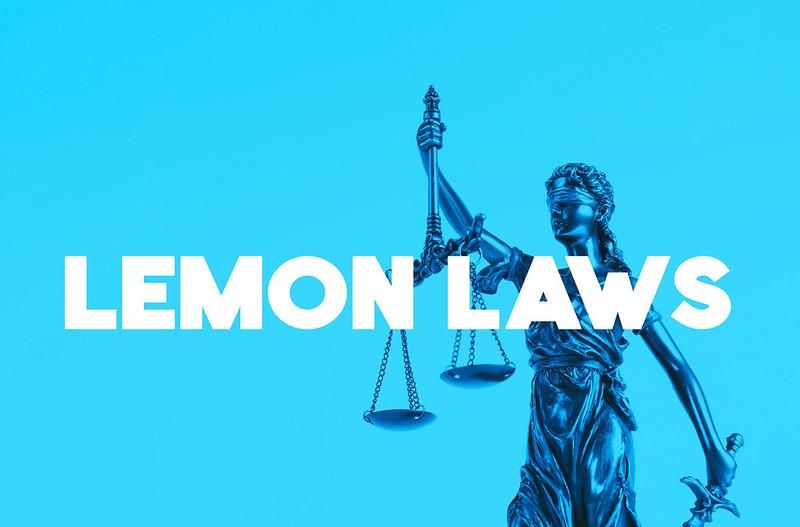What to Do if You Were Sold a Lemon Car
Image Credit: Jernej Furman / flickr

What Are Lemon Laws for Cars?
Lemon Laws for cars are ones that cover new car purchases (or leases) by both federal and state consumer protection regulations. The basic text of the law states that cars that have a substantial defect that cannot be fixed within a reasonable amount of time are considered a Lemon and therefore qualify for a refund or replacement. Whether you have leased, financed or bought the vehicle outright, this covers a major defect in the car's use and other warrantied features.
While there is a federal law in place for all 50 states and the District of Columbia (AKA the Magnuson-Moss Warranty Act), each state has varied definitions of "substantial defect" and "reasonable amount of time" (both discussed later).
What Qualifies as a "Lemon"?
A "Lemon" as it is referenced here, is a car that, within a short amount of time after purchase (or lease), is proving faulty- whether it doesn't perform in ways essential to the vehicle functioning whatsoever or is life-threatening. These can range anywhere from starters to major systems (e.g., transmission shudder, engine stalling, etc.) that make the car unable or completely unsafe to drive.
Image Credit: Jernej Furman / flickr

The federal law that covers most of these cases can be found at https://uscode.house.gov/ under Title 15, Chapter 50 (all sections) and states that this must be a defect covered by the vehicle's warranty. Not only are new cars covered under these protections, but in some cases, also used cars and trucks. While most private used sales are offered "as-is" (no warranty), they could still be covered until a manufacturer warranty, if new enough, under mileage given, etc. Used sales from a dealer could be covered under their own warranty as part of the offer.
Substantial Defect
A "substantial defect" is a complication of the vehicle (covered by the warranty) that impairs the car's use, value, and/or safety (faulty brakes or steering). Minor defects are typically ones that are simply annoying and unexpected when buying a new car but can vary greatly depending on the state in which you reside.
Reasonable Repair Attempts
If you are filing a Lemon Law complaint, there are things that must be done on your end to prove your case. You will need to keep great records of the servicing of your vehicle for the malfunction you are experiencing. The repair attempts vary depending on the system within the car and again, the state you reside. Here are three examples of reasonable repair attempts:
- If you have defective brakes or steering during your warranty period, the dealer or manufacturer must fix the problem in one attempt, or it can be deemed a Lemon.
- If it's a less serious safety defect like brake light wiring causing one to work only sporadically, it will need three or four unsuccessful repairs before it can be called a Lemon under the law.
- If the vehicle is in the shop a specific number of days within a 1-year period (typically 30 days), to fix one or more substantial warranty defects, it may also qualify as a Lemon.
Typically, you must return to the dealer where you bought the car (or a closer location, if out-of-state purchase- keep this approval record, too) for repairs or you can void your warranty. Of course, since these repairs are covered under your warranty, there should be no charge for them. The dealer can offer you a loaner for a quick (1-day) fix, but you may be responsible for any up-front charges or holds if you need a rental car for an extended repair period. Fortunately, you can be reimbursed for those and other "reasonable" charges if your case is heard and you retain all receipts (must show dates matching repair dates and a "similar" car was selected, if available).
Getting a Refund or Replacement Car
If your car meets all the criteria under the Lemon Law for your state (or Federal, if no state requirements), this gives you the opportunity to receive a replacement vehicle or a refund of the vehicle. This process, again, will vary depending on where you reside, but the first notification of the faulty vehicle must be made to the manufacturer. If after reviewing your documentation and steps taken by you to fix the vehicle, you're not offered a satisfactory resolution, legal action* might be necessary.
*( Attention- this is not to be taken as legal advice but as a general guide ) In this case, you may be entitled to a settlement including (but not limited to) the purchase price of the car, car rental fees, attorney's fees and/or what your state allows. Typically, you do not have to pay legal fees upfront- please consult with various lawyers in your area for information.
Finding the Lemon Law in Your State
To find the Lemon Law in your state, visit https://bbbprograms.org/programs/all-programs/bbb-autoline/lemon-laws-by-state (find your state or if in the capital, District of Columbia)
How to Avoid Picking a Used Lemon
While most Lemon Laws apply to new car sales only, a few states do cover used car sales. Some laws will cover a car if its under a specific amount of mileage or still covered by the original warranty at the time of purchase.
To avoid picking a used lemon, you will need to do your homework. As with any car purchase, you should always test-drive the car first. After that, here are some suggestions to avoid a Lemon:
- Check reports on that same make and model car to see if Lemon Law cases have been filed and/or completed.
- Pull a title report* for your specific car from a trusted source, making sure there aren't multiple repairs in a short amount of time for the same issue/ system ( https://www.carfax.com/vehicle-history-reports/ is a good one).
- visit an ASE-certified mechanic*. Have them look at the car- they will typically need the car in their shop to run complete diagnostics and give you a comprehensive report of the car's functionality.
*Note- the title report and mechanic visit could set you back at least a couple hundred dollars but will save you the time and headache of a Lemon purchase.
Lemon Law FAQ's | Commonly asked Lemon Law Questions and Answers
What is the time limit for enforcing the Lemon Law?
The federal Magnuson-Moss Warranty Act applies in all states without specific laws and allows you to file a claim for up to four years after your warranty was breached. However, some states can limit you to either (1) six months after the warranty term or (2) one year following the original delivery. Find your state's specific limit here: https://bbbprograms.org/programs/all-programs/bbb-autoline/lemon-laws-by-state (find your state or if in the capital, District of Columbia)
Am I entitled to an additional settlement for my trouble?
You are entitled to a settlement if you have exhausted all possibilities to resolve your Lemon Law claim. See your state's specific settlement information here https://bbbprograms.org/programs/all-programs/bbb-autoline/lemon-laws-by-state (find your state or if in the capital, District of Columbia)
Do I have to hire a lawyer to get my car replaced?
- Absolutely not. You will file your complaint directly through the manufacturer for resolution first. If there isn't a reasonable solution, you may file with the Better Business Bureau by using the following link https://bbbprograms.org/programs/all-programs/bbb-autoline/lemon-laws-by-state (find your state or if in the capital, District of Columbia)
- If you're having issues after filing through the Better Business Bureau, though, then you may want to reach out to a trusted attorney (one in/around your state will be more familiar with the laws and any nuances within your region).
What information do I need to file a complaint with the Better Business Bureau?
- Owner's (or Lessee's) name and physical address
- Vehicle identification number (VIN- can be found in multiple locations on the car itself, on your title, insurance documents, etc.)
- Make, model, and year of the vehicle
- Description of the problem (as many details as possible using the documentation discussed in the "Getting a refund..." section)
- Current mileage of the vehicle
See more at https://bbbprograms.org/programs/all-programs/bbb-autoline/lemon-laws-by-state (find your state or if in the capital, District of Columbia)
Are there any circumstances that would exclude me from a successful Lemon Law claim?
- There are several things that can make your claim invalid. Some of these include:
Adding after-market parts and/or modifications that would make it defective Having an accident in the car (in some cases, even if it was caused by the defect) Abuse and neglect by an owner that causes the defect
Updated